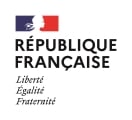A broad control framework
AFT must meet stringent control criteria. The agency is legally required to answer parliamentary questions, especially concerning the groundwork for budget acts. AFT is also subject to a number of audits, including by the Government Audit Office (two audits per year for accounting matters and one for the Budget Outturn Report).
These controls also include action by specialised audit firms to validate the quality and probity of accounting information, to issue opinions on the monitoring of prudential measures or to conduct the annual internal audit.
AFT has also elected to comply with the obligations stipulated in the Order of 3 November 2014 on the internal control of businesses in the banking sector, inasmuch as they apply to the agency. All these measures mean that AFT has permanent mechanisms for assessing and controlling all the risks generated by market and cash management transactions.
Tasks of the AFT internal control, compliance, risk policy and legal affairs unit
AFT has an Internal Control, Compliance, Risk Policy and Legal Affairs Unit that is independent from its operating functions. This unit oversees AFT’s internal control system, organises permanent monitoring of its activities and legal commitments, and manages the risks associated with financial transactions and the selection of counterparties. The unit coordinates the various external control and audit tasks in these areas.
The scope of this control and risk monitoring function has widened because of the diversity of AFT’s transactions, the payment circuits used and the growing number of international counterparties.
The unit also drafts recommendations on risk management policy for the approval of AFT General Management and that of the Directorate General of the Treasury, along with any other measures that enhance risk monitoring. The unit is also responsible for managing legal and compliance risks, ensuring the validity of AFT’s contracts, monitoring regulatory developments, managing the rules of professional conduct for employees and managing the confidentiality policy.
Together with the line functions, the unit regularly updates AFT’s general activity framework, which sets management, organisation and control standards for managing identified risks, which is approved by the Director General of the Treasury. The unit is also responsible for maintaining AFT’s business continuity plan, and for adapting ministerial instructions on crisis management to AFT's structure.
Lastly, it provides coordination and secretariat services for the AFT Risk Committee, which was inaugurated in 2019 based on the provisions of the Order of 3 November 2014, as adapted to the structure of AFT. The purpose of the committee is to enhance the formalisation of some of the work and decisions regarding risk management and internal control, but it also brings in experts from outside AFT for their views on these matters and priorities for future action. Its members include senior managers from the Treasury, the Ministry’s Budget and Accounting Control Department and external persons with the requisite expertise. The committee meets once a year.

